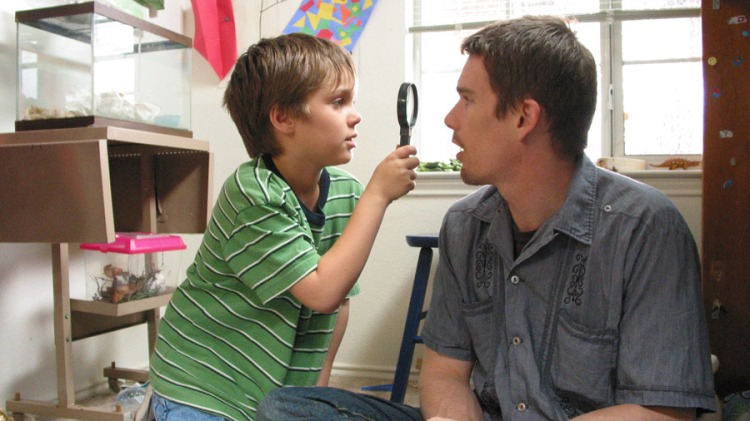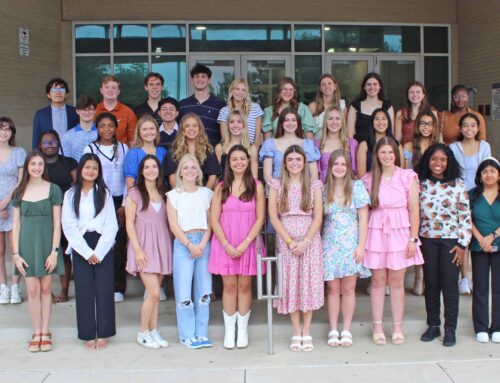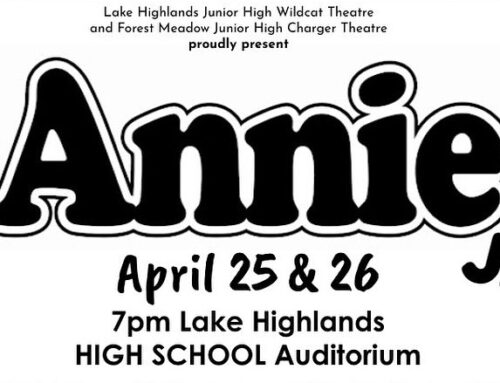Writer-director and indie darling Richard Linklater has never been one to shy away from unconventional projects; the philosophy primer Waking Life, the ambitious animated science fiction drama A Scanner Darkly, the Before trilogy, and the pseudo-true crime dramedy Bernie all bear the mark of a filmmaker playing with form. Which is why Linklater’s ambitious drama Boyhood is a logical extension of his work, as well a disarming, groundbreaking, and wholly unique piece of storytelling. Filmed over a twelve-year period as its central character, a boy named Mason (as well as the actor who plays him, Ellar Coltrane) matured and grew from ages 6 to 18, the movie is a fascinating experiment in film narrative that succeeds thanks to its emotional honesty.
Boyhood is essentially 12 short films edited together into a roughly two-and-a half hour feature. Linklater filmed a few days at a time every year from 2002 to 2013, each covering a brief but formative period in the life of Mason and, by extension, his sister Samantha (Linklater’s daughter, Lorelei) and their divorced parents (Ethan Hawke and Patricia Arquette) in the suburban Texas that the director has demonstrated a shrewd and unerring ability to portray. Mason/Ellar blossoms from chubby-cheeked and precocious child to lanky promising young man as he weathers the awkwardness of adolescence, his mother’s string of bad relationships, the absences of his well-meaning father.
It has a cumulative effect on us, and by the time the credits roll, we’ve become as invested in Mason and his family as they have in each other, and the key moments in their lives resonate with us incredibly: Mason’s first love and subsequent first heartbreak, that overwhelming question of “What do I want to be?” that dogs him and Samantha as teenagers, his mother’s collision with middle-age angst when the kids leave the nest, and so on. It’s real life at its most prosaic, and Linklater presents so confidently and straightforwardly that it packs more punch than any number of very special episodes of whatever.
Along with the changing characters, Linklater (perhaps inadvertently) tracks the arc of life in America over the past decade or so, via then-current events, the music featured, the evolutionary arc of consumer electronics, and various other details. (An offhand debate between Dad and Mason about the future of the Star Wars franchise, filmed several years ago, seems borderline clairvoyant.) On its surface, it’s a simple conceit, but the logistics must have been a nightmare. Any of the central players could have left the project for any number of reasons, and any number of factors could have rendered the project untenable. (As Boyhood itself illustrates, life throws us plenty of curve balls, especially over a twelve-year stretch).
Alfred Hitchcock once described drama as “life with the dull bits cut out”. If that’s true, then Linklater has discovered post-drama, and in the process proven Hitch wrong. His vignettes unfold much the way that real life does, as a series of ups and downs, of life-changing events and seemingly banal moments, of joy and misery — all free of artifice and affectation.






